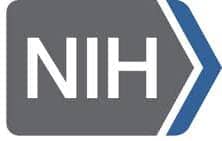Researchers may have discovered a treatment to prevent hypertrophic cardiomyopathy, which is suggested to be a common culprit in sudden cardiac death among young athletes.
Hypertrophic cardiomyopathy is an inherited disease that can cause the heart to thicken and stop pumping blood effectively, leading to heart failure. According to a media release from University of Vermont, 15 years ago David Warshaw, PhD, and others discovered the malfunction of the specific protein—myosin—that led to this disease.
Myosin acts as a tiny molecular motor in every heart muscle cell. It pulls and releases on a rope-like protein, actin, in order to make the heart muscle contract and relax as it pumps blood. A mutation of myosin can “alter the motor’s power-generating capacity” and make the heart work improperly, which in turn causes the heart to enlarge, according to Warshaw, professor and chair of molecular physiology and biophysics at the University of Vermont (UVM) College of Medicine, in the release.
A research team recently used some of Warshaw’s earlier findings to develop a possible treatment to prevent this disease from occurring.
In their study using mice bred with the myosin mutation, published recently in Science, they tested a small molecule inhibitor that dials back the myosin motor’s power generation to a more normal level. They gave the drug containing the molecule to the mice as early as 8 weeks old, and found that it prevented the HCM from surfacing, according to the study
“When they gave the drug to a young mouse with the mutation, the mouse’s heart developed normally,” Warshaw states in a companion “Perspective” article with the research study.
Because HCM runs in families, an infant who tests positive for the genetic mutation could receive the treatment and stave off the disease, Warshaw says in the release. Development of a human drug, however, would require much more extensive testing and many remaining questions to be answered, he says in the release.
Nonetheless, Warshaw sees great potential. In previous studies, he has found that mutations to other heart proteins also result in increased heart muscle power generation, in turn leading to HCM. The same molecule, he says, could still be used on the myosin motor to compensate and thus block the disease in those cases as well, the release explains.
[Source(s): University of Vermont, Science Daily]





